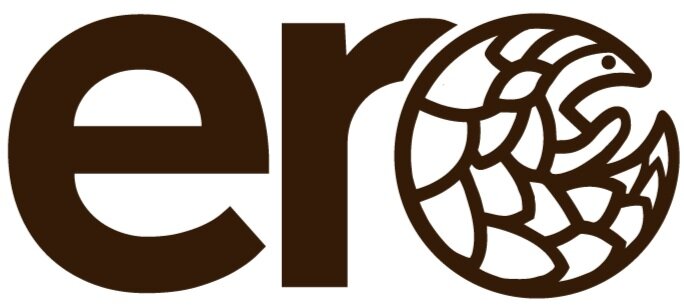A plea: ‘Open up the borders (for journalism)!’
Op-ed by Gie Goris and Jago Kosolosky, current and future editor-in-chief of MO*, Belgium.
Late last year, MO* under the leadership of Gie published The Pangolin Reports in Flemish. On Aug. 1, 2020, Jago will take over the helm from Gie as editor-in-chief of MO* magazine and the news site. This op-ed first appeared on MO* on March 17, 2020.
While the world is forcing us to cooperate internationally and begging for global remedies for everything from the coronavirus to the climate crisis, there is still far too little attention to global journalism. Gie and Jago regret that.
Information is vital. Anyone who still has doubts about this in these coronation times must crawl out of his bunker. For weeks, the Chinese government hampered an efficient approach to the new virus by the prevailing culture of censorship. The U.S. President had a similar effect by mocking science. And in Italy, the seriousness of the story was minimized so as not to harm economic interests.
Throughout all the differences, it turns out that governments everywhere today are extremely image-sensitive, which mainly means that they want to decide for themselves which information is published and which narrative gets the upper hand. That is why journalism exists: to disobey the laws of communication services, even when they are laid down in actual law — as in China.
No matter how eagerly everyone clicks on razor-sharp opinions or sleazy stories, they do not turn readers into informed citizens.
An important point to make here, is that it is not only politicians who strive for complete communication control and place their image above the truth and transparency. Companies, organisations and even some media commit the same sins.
It would be easy for us to write here that it is “the mainstream media” that sweep the journalistic mission under the carpet of profit and readership numbers. But the world isn’t that black and white (fortunately).
Standing up for the duty to show and interpret the unpleasant truth, the invisible dreams or the complex coherence of things is also a daily challenge for media without profit motive. No matter how eagerly everyone clicks on razor-sharp opinions or sleazy stories, they do not turn readers into informed citizens. And no matter how relevant and necessary local or national reporting is, if it remains disconnected from global developments, these stories conceal more than they clarify.
“Information is vital to make rational choices,” said Nobel Prize winner Amartya Sen in an interview with MO* a few years ago. Make that “correct information”. For “misleading information or the messed up emotions of communal identities” are ubiquitous today and prevent the very conversation that is necessary, Sen said. The corona crisis makes that clear, but the climate crisis may be an even more painful example in the slightly longer term, because it will be more deadly, for example.
Investing in newsrooms with a global outlook and expertise is a must-do for every medium and a societal necessity.
Journalism should not feed doubt on such a crucial issue, as it is deliberately fuelled by cynical politicians or opinion makers; on the contrary, it should insist on correct information — even if it is uncomfortable or even disturbing.
After half a century of intensive globalisation, global journalism should be evident. But it is not. There is, of course, a never-ending stream of reports from Trumpland and there is the enduring obsession with war and disasters in remote areas, but how many Belgian journalists today still have the time and the means to delve deep into what really determines our future?
And that refers not only to global climate change and the accompanying transition, but also to the destruction of the Middle East, the enormous potential of Africa, the disruption of booming Asia, the geopolitics of energy, the power of women’s protest in Latin America, the human stories behind more than sixty million fugitives and displaced people, the alarming increase of terrorist violence in the Sahel,…
Yet for these and so many more global trends and their local translations, what we said above is true: information is vital. As long as oil or tobacco multinationals can hide their knowledge about climate change or cancer, ordinary people die from the consequences of their business model. As long as authoritarian populists monopolize the stage and social media, they can turn any lie into an electoral goldmine. We realize all too well that information alone is not enough to reverse this, but it is necessary.
Global information feeds the debate on the structure of the globalized society.
Investing in newsrooms with a global outlook and expertise is therefore a must-do for every medium and a societal necessity. It means, investing in professional journalists who have the time to investigate and write, who can experience the complex reality in the field, who are fully critical of the spin and communication strategies of the powers that be, but who also continue to question their own sympathies.
Over the past seventeen years, MO* has shown that such investments provide knowledge, insight and understanding. Qualitative added value for readers and society. We are pleased that we are not entirely alone in this and would actually prefer to have a little more competition.
For the importance of global news is not just a matter of intellectual satisfaction, and certainly not a question of branding. Global information feeds the debate on the structure of the globalized society. Open the borders for information, give journalists the opportunity and the assignment to search for the truth worldwide, involve the reader in everything that impacts him or her or should matter to them. High Street and Main Street are important, as are my house and the White House, but journalists should also be able to report on Tahrir Square and Avenida de los Derechos Humanos.

